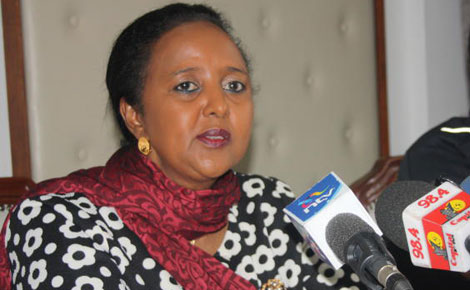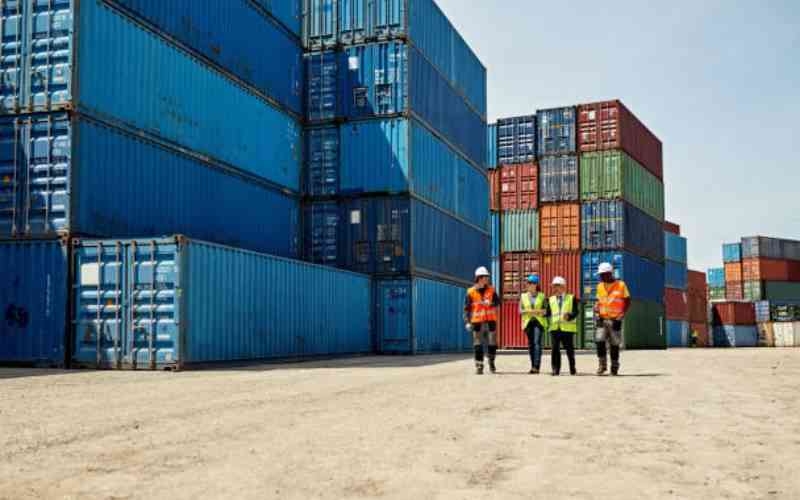 |
|
Foreign Affairs Cabinet Secretary Amina Mohamed. |
Nairobi, Kenya: Thousands of jobs are at risk after Kenya failed to broker a trade deal with the European Union (EU). This is after the Economic Partnership Agreements (EPAs) that accord preferential export benefits for Kenyan exporters to the EU markets failed to meet Wednesday’s deadline.
As a result, Kenyan products that have been enjoying duty-free export to the EU now have to pay between four and 30 per cent in taxes starting Wednesday.
Kenya Flower Council (KFC) chairman Richard Fox said the local horticulture industry stood to lose more than Sh1 billion monthly, considering about 90 per cent of total exports go to the EU.
Even if negotiations are concluded this week, it would take at least six months for Kenya to be included on the list of beneficiary countries of the new market access regulation.
This means the country’s exporters would in the next six months be subject to duty.
Negotiations for ratification of the new EPAs structure have been in the works over the past decade but the deadline for putting pen on paper expired at midnight on Tuesday.
The Government, the EU and stakeholders in the industry have been locked in separate meetings to chart the way forward on the issue, with the EU set to release a statement later this week.
Even as the Government and officials from the economic block remained tight-lipped as to the progress of the negotiations, experts warn the shock-waves are set to be felt across the Kenyan economy.
The probabilities are there would be job losses, foreign reserves erosion, revenue loss and mass exodus by companies to neighbouring countries enjoying duty-free access to the EU market.
"Kenya is in danger of letting an opportunity of €24.7 billion (Sh2.7 trillion), which was revenue from the European market, slip through our hands," said Kenya Association of Manufacturers CEO Betty Maina. "Goods to Europe will now be subject to custom duties of approximately Sh7.64 billion annually in taxes or about Sh637 million per month."
EAC concerns
Last week, Foreign Affairs Cabinet Secretary Amina Mohamed met with EU Managing Director for Africa Nick Westcott at the UN Headquarters in New York and asked parties to conclude negotiations on the outstanding issues ahead of the deadline.
"A meeting of senior officials should be held as soon as possible, preferably next week to finalise negotiations on the outstanding issues," she said.
Mr Westcott said the East African Community (EAC) should hold a common position and that the EU was committed to working towards a mutually beneficial agreement.
However, the challenge has been that while the other East African countries are classified under least developed countries (LDCs), Kenya is ranked above and has more to lose if negotiations drag for long.
Stay informed. Subscribe to our newsletter
Under the EU protocol, LDCs do not have to sign the EPAs since their preferences would continue under the Everything But Arms trade arrangement. Further, Kenya is likely suffer more as her partners export very little to the EU market.
Foreign Affairs Principal Secretary Karanja Kibicho said Kenya's higher status lends it a stronger sense of urgency than the other East African countries and that negotiating as a block might not provide this shared sense of urgency.
This is because Uganda, Tanzania, Rwanda and Burundi would continue to enjoy duty free and quota free exports to Europe owing to their LDC status, Dr Kibicho said.
"Our other brothers and sisters in the EAC are all LDCs and we are not. To them it is not as urgent as it is to us," he said. "However, the signing of EPAs should not kill the spirit of regional integration."
Of key concern is Kenya's flower sector which is expected to export 125,000 tonnes this year, netting the country some €531 million (Sh46 billion) in earnings this year alone.
In 2013, Kenya's horticulture industry netted Sh89 billion, more than twice the value of coffee, fish and tobacco exports combined.
Flower exports would now attract a duty of 8.5 per cent, tuna fish 20.5 per cent, other fish 15.7 per cent, fresh avocado 1.6 per cent, fresh pineapple 2.1 per cent, processed pineapple 22 per cent, processed vegetable 30 per cent and roasted coffee 2.6 per cent.
The additional taxes would mean production costs in Kenya would be much higher across these sectors.
This year, EAC countries had two meetings in March and July but did not agree on some contentious issues, namely export taxes, governance, export and domestic subsidies.
Trade counsellor at the EU mission in Nairobi Christophe De Vroey was recently quoted by the local media as saying once negotiations were concluded, it would take about six months to integrate Kenya into the list of beneficiaries of market regulation access, as it would still have to be fully ratified in the six jurisdictions: EU and the five EAC States.
"The reason being that once concluded, the agreement will be legislated by various institutions, for example, the EU Council and EU Parliament, a legislative procedure that might take up to four months," explained Vroey.
"That is why the EPAs and the other regional groupings were all concluded and signed before July 1, this year, precisely to meet the September 30 deadline."
According to Economic Survey 2014, Kenya's exports to the EU accounted for 24.6 per cent of total value of exports. About 90 per cent of the exports are agriculture products.
 The Standard Group Plc is a
multi-media organization with investments in media platforms spanning newspaper
print operations, television, radio broadcasting, digital and online services. The
Standard Group is recognized as a leading multi-media house in Kenya with a key
influence in matters of national and international interest.
The Standard Group Plc is a
multi-media organization with investments in media platforms spanning newspaper
print operations, television, radio broadcasting, digital and online services. The
Standard Group is recognized as a leading multi-media house in Kenya with a key
influence in matters of national and international interest.
 The Standard Group Plc is a
multi-media organization with investments in media platforms spanning newspaper
print operations, television, radio broadcasting, digital and online services. The
Standard Group is recognized as a leading multi-media house in Kenya with a key
influence in matters of national and international interest.
The Standard Group Plc is a
multi-media organization with investments in media platforms spanning newspaper
print operations, television, radio broadcasting, digital and online services. The
Standard Group is recognized as a leading multi-media house in Kenya with a key
influence in matters of national and international interest.










